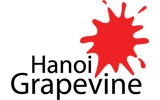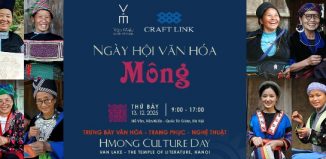The Battle of Điện Biên Phủ

Today in the history of Vietnam
7 May marks the anniversary of the Battle of Điện Biên Phủ when Vietnamese forces dealt a final blow to French colonization of Vietnam
The Battle of Dien Bien Phu (French: Bataille de Diên Biên Phu; Vietnamese: Chiến dịch Điện Biên Phủ) was the climactic confrontation of the First Indochina War between the French Union’s French Far East Expeditionary Corps and Viet Minh communist revolutionaries. The battle occurred between March and May 1954 and culminated in a comprehensive French defeat that influenced negotiations over the future of Indochina at Geneva. Military historian Martin Windrow wrote that Điện Biên Phủ was “the first time that a non-European colonial independence movement had evolved through all the stages from guerrilla bands to a conventionally organized and equipped army able to defeat a modern Western occupier in pitched battle.”
As a result of blunders in the French decision-making process, the French began an operation to support the soldiers at Điện Biên Phủ, deep in the hills of northwestern Vietnam. Its purpose was to cut off Viet Minh supply lines into the neighboring Kingdom of Laos, a French ally, and tactically draw the Viet Minh into a major confrontation that would cripple them. Instead, the Viet Minh, under Senior General Võ Nguyên Giáp, surrounded and besieged the French, who were unaware of the Viet Minh’s possession of heavy artillery (including anti-aircraft guns) and, more importantly, their ability to move such weapons through extremely difficult terrain to the mountain crests overlooking the French encampment. The Viet Minh occupied the highlands around Điện Biên Phủ and were able to accurately bombard French positions at will. Tenacious fighting on the ground ensued, reminiscent of the trench warfare of World War I. The French repeatedly repulsed Viet Minh assaults on their positions. Supplies and reinforcements were delivered by air, though as the French positions were overrun and the anti-aircraft fire took its toll, fewer and fewer of those supplies reached them. After a two-month siege, the garrison was overrun and most French forces surrendered, only a few successfully escaping to Laos.
Shortly after the battle, the war ended with the 1954 Geneva Accords, under which France agreed to withdraw from its former Indochinese colonies. The accords partitioned Vietnam in two; fighting later broke out between opposing Vietnamese factions in 1959, resulting in the Vietnam (Second Indochina) War.
Source and more information: Wikipedia.
![]()
| Translation from English to Vietnamese kindly provided by my Vietnamese teacher, Bùi Phương Thảo. I need your help: If you know of any upcoming event for this column, please let me know. Hanoi Grapevine focuses mainly on contemporary art and culture in Vietnam, but we also post information about events that are part of Vietnam’s rich cultural heritage. |














